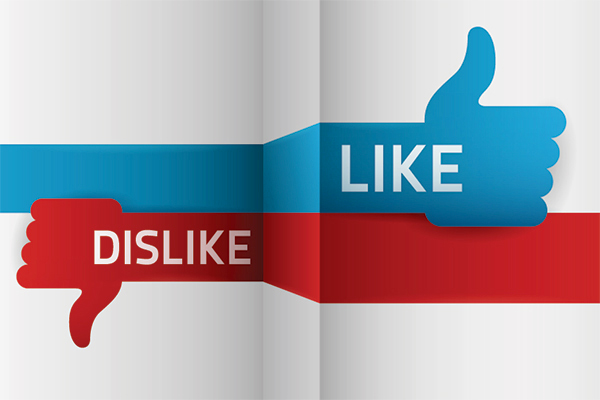Have you seen our latest RSA Short: How Cooking Can Change your Life?
"Eat anything you like, as long as you cook it yourself?" Pretty intriguing advice, no? Did it make you want to get home and buy, unpack, wash, peel, chop and fry some potatoes?
Not quite? Well this reheated blog post full of hidden salt, sugar and fat from July 15th might help to convince you.
I wrote it after listening to the podcast, which gives a much fuller picture of the important argument, and which I would strongly recommend listening to, ideally in your kitchen with a good chopping board and a few willing vegetables.
More than half a year later, I am even more sure that the idea is worth heeding and reflecting on for its political implications. The basic idea sounds trivial (let's all cook more, ha ha...) but it might just be the kind of small revolutionary act that could lead to significant systemic change if it really took hold.
The idea that we should (in the pragmatic and moral senses of the term) all cook more might even be relevant to the RSA's emerging world view around the power to create; at its heart it's about shifting the balance of power from big to small, and distributing a daily act of creativity much more widely. It's also fun, good for your health and ecologically beneficial, but those arguments are small fries....
Potentially much more motivating is the Bachanalian carnival of aromatic delights that lies dormant within your very own unsuspecting kitchen.
Why not start tonight by adding some cumin to your beans on toast?
##
That title (Is Cooking a Subversive Act?) makes the content sound like a combination of self-help and how-to, but it's much more political than that. The speaker, Michael Pollan, is a professor and activist who sees food in general, and cooking in particular, as a critical driver of the economic and social order.
That might sound a little bourgeois and worthy- Who has the time? Who has the kitchen space? But the evidential case is pretty strong. Processed food generally tends to be much less cheap and convenient than we imagine, for instance, and the relationship between cooking and health is apparently very robust.
He starts the talk with the example of the fries sold at a famous fast food restaurant having to be long to look right in the red boxes, which means a special kind of long potato has to be grown, and that that strain of potato has to free of blemishes, which means you need a certain kind of pesticide which is highly toxic...and this is one example of thousands- the food we see every day carries with it a huge range of generally hidden public health and environmental issues.
The familiar argument is that our reliance of processed foods is a huge public health problem, but the twist is that one of the main things that perpetuates the problem is the idea that cooking is a kind of problem or drudgery that the market should solve for us, rather than a creative and joyful act that we should do for ourselves and each other. In this sense cooking is the fulcrum around a much broader argument for an economy, promoted by nef amongst others i.e. an economy that properly values time and the costs of not having time, and allows us to be a bit less like time-starved consumers and a bit more like time-plenty producers (who, on balance, tend to be happier).
The familiar argument is that our reliance of processed foods is a huge public health problem, but the twist is that one of the main things that perpetuates the problem is the idea that cooking is a kind of problem or drudgery that the market should solve for us, rather than a creative and joyful act that we should do for ourselves and each other
A few ideas/quotes from scribbles on a train (check audio for verbatim quotes):
- The food industry don't speak of fat, salt and sugar in terms of 'addiction'. Instead they tend to use the words 'cravability' and 'snackability'
- Poor women who cook are healthier than rich women who don't
- Food marketing tends to operate by creating anxiety and the providing a solution (at one point Pollan makes reference to feminism giving rise to a domestic redistribution of labour, in which women who work couldn't possibly be expected to cook as much as they used to...However this change doesn't happen without resistance, and the ensuing arguments are then placated by adverts that implicitly say - don't fight about it, we'll do it for you...)
- "Special occasion foods become every day foods when we let industry cook for us."(One example Pollan gives is french fries or chips. They taste great when you cook them yourself, but the process is highly labour intensive(washing, peeling, cutting, pan, oil, splattering, oil, washing up etc) so left to our own devices we might eat them only every month or so as a treat, but many Americans now eat two batches of french fries a day because they have become so convenient.
- The diet that would work for everybody is: eat anything you like, just cook it yourself.
- Michele Obama's original speech about food and the subsequent 'let's move' campaign was really powerful/radical, but its impact was lessened when she got into a conversation with the food industry about reformulating the ingredients of processed food. The speaker compared this to 'low fat' food being a mixed blessing, because it tends to mean other 'bad things' are put in to replace the fat.
- "Slightly improved processed food is a trap"
- "Health is a collective property of the human microbiotica"
- "The environment is not just 'out there', it's passing right through you
By Jonathan Rowson, Director, Social Brain Centre, Follow at @jonathan_rowson
Related articles
-
How can we give up bad habits for good?
Ian Burbidge
With the post-Christmas resolutions looming, when we try to address the worst of our seasonal over-indulgences, the question remains: how can we give up bad habits for good?
-
Why fake news doesn't swing elections
Tony Greenham
Fake news doesn’t swing elections, but neither does ‘truth’. We have always filtered new information to fit our existing prejudices. The real danger to our democracy is not an absence of truth, but an absence of trust.
-
Tell me a story? Or give me the figures?
Nathalie Spencer
What is the best way to influence stakeholders and generate change? Different approaches to generating change have different strengths, when should each be used to the best effect?




Join the discussion
Comments
Please login to post a comment or reply
Don't have an account? Click here to register.
(double post)
Glad I could bring it to your attention! It's from a fantastic essay Watts wrote provocatively (and lovingly) titled Murder in the Kitchen. It can be found in a book collection of his essays called Does it Matter?: Essays on Man's Relation to Materiality. This link should be cued up to that section (there are, of course, pages missing from this Amazon "preview"):
http://bit.ly/1hOJKNY
It's also available at scribd (though only in preview form, with the majority blurred out...and I'm not sure if it's the full essay or an abridged version):
http://www.scribd.com/doc/1199...
Edit to add: Also just found a great article on it from a couple years back:
For the love of food
http://www.newsreview.com/chic...
Many thanks- I love this quotation! Any idea of the original source?
"The one absolutely essential requirement for the art of cooking is a love for its raw materials: the shape and feel of eggs, the sniff of flour, or mint, or garlic, the marvelous form and shimmer of a mackerel, the marbled red texture of a cut of beef, the pale green translucence of fresh lettuce, the concentric ellipses of a sliced onion, and the weight, warmth, and resilience of flour-dusted dough under your fingers. The spiritual attitude of the cook will be all the more enriched if there is a familiarity with barns and vineyards, fishing wharves and dairies, orchards and kitchen gardens."
- Alan Watts
Less and less people are cooking because we're made to believe that it's tedious and expensive. With the right ingredients and simple, straight forward cooking I think more people will be convinced that home-cooked meal can be easy, delicious and healthy.